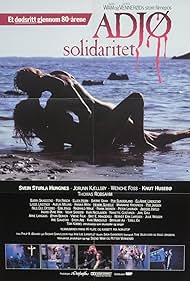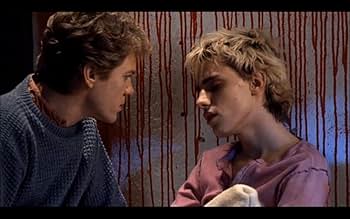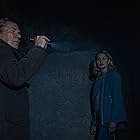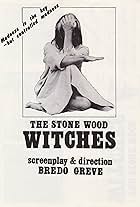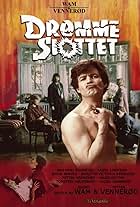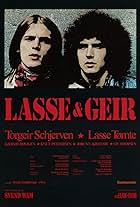Wam & Vennerød continued to lament their generation's lost illusions and muddled principles in this second entry in their so-called "Sangen om knuste drømmer" trilogy (which also included "Åpen framtid" and "Drømmeslottet"). In "Adjø Solidaritet", we meet the two middle-aged pals Atle (Svein Sturla Hungnes) and Eigil (Knut Husebø), who keep disappointing themselves in both their respective work as a psychiatrist and a theatre director, and as more or less failed fathers. The theatricality of the actors combined with the filmmakers' bombastic, hammy scenes make parts of the film borderline parodic. Wam and Vennerød were idealists and politically engaged, but they never really had the necessary skill in directing actors, the result of which is that any effective, authentic performances were down to the ability of the individual thespians. There are not too many examples of such here, with the noble exception of Wenche Foss and a couple of fun bit parts from Nils Ole Oftebro and Erik Hivju. Young Thomas Robsahm - whose role is a thematic focal point in the story - tries to model his Fridtjof after his co-star Torgeir Schjerven's performance in "Lasse & Geir", but his temperament and idiosyncrasy come off as contrived. Robsahm would have more success as a producer later in his career (notably on "Verdens verste menneske"). There are similar problems with a number of the other supporting performances, not least Jorunn Kjellsby as Astrid and Julie Wiggen as Mette. This reduces some of the film's thematic potential to melodramatic posturing. "Adjø solidaritet" is at its most effective in a number of dreamlike flashback scenes, where the aforementioned theatricality comes into its own. And despite all its obvious shortcomings, the film does have a richness to it. The filmmakers' thematic and narrative ambition is commendable, even if the film must be considered a failure on both of these two aspects. Directors' trademark: Eigil's birthday party, a fun segment which is like a who-is-who of contemporary Norwegian actors.
